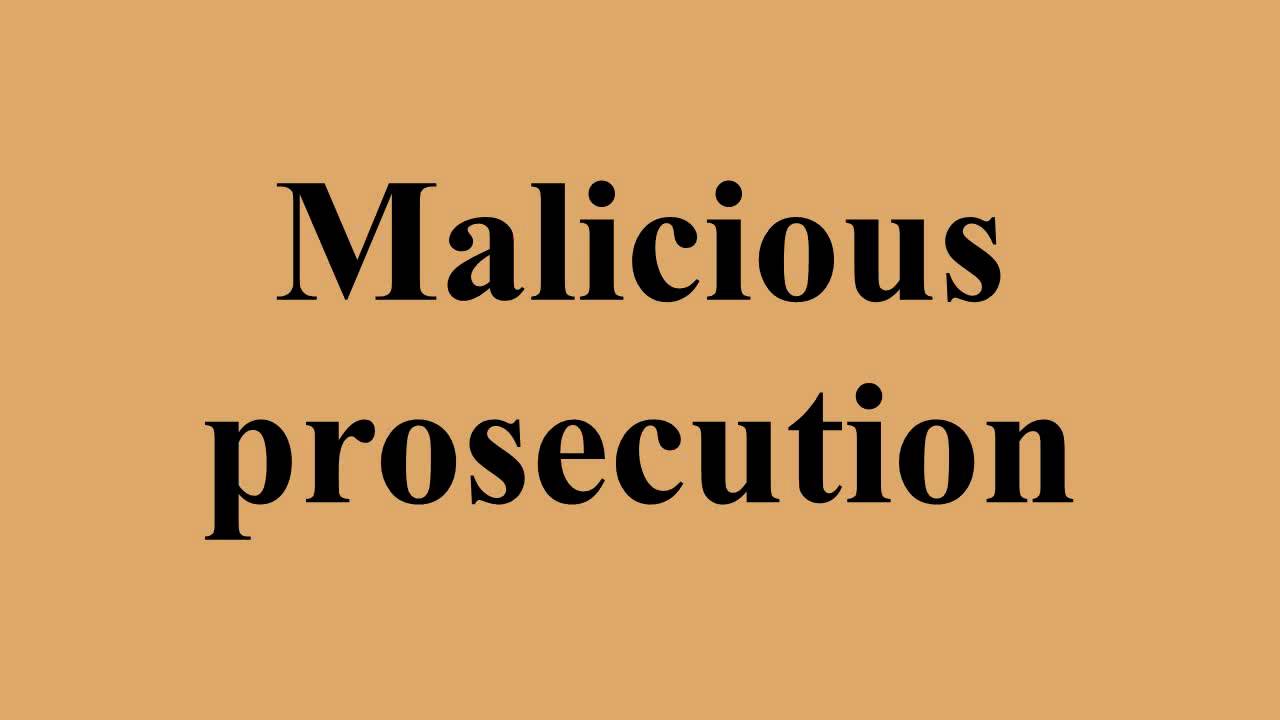Malicious Prosecution – Law Notes – For W.B.C.S. Examination.
ক্ষতিকারক মামলা – আইন নোট – WBCS পরীক্ষা।
Malicious prosecution and abuse of process are related types of civil lawsuits where one person (the plaintiff) sues another person (the defendant) for, in a prior case, trying to use the legal system against the plaintiff in an inappropriate manner. The prior case can be either criminal or civil in nature.Continue Reading Malicious Prosecution – Law Notes – For W.B.C.S. Examination.
Difference between Malicious Prosecution and Abuse of Process
While the two claims are similar, malicious prosecution and abuse of process claims have some essential differences.
A plaintiff can sue for abuse of process when a defendant starts legal proceedings with the intention of obtaining results for which the process was not designed. A plaintiff can sue for malicious prosecution when a defendant “maliciously” prosecutes a criminal case or uses a civil proceeding against the plaintiff when the defendant knows he or she doesn’t have a case. In addition, the plaintiff must have already obtained a “favorable termination” of the defendant’s malicious case (the case was dismissed or there was a ruling in the plaintiff’s favor, for example) before he or she can sue for malicious prosecution.
A “legal process” can be any part of a lawsuit, not simply the entire lawsuit. For example, a defendant’s personal injury lawsuit might have been legitimate, but the use of a particular deposition or other smaller, discrete aspect of the lawsuit may not have been. Even though the lawsuit was valid, the plaintiff can still sue for abuse of process based on the illegitimate deposition.
The best way to think of the “improper purpose” requirement in an abuse of process claim is that, although the defendant had a technical right to use the legal process, he or she did so to extort something else from the plaintiff—or example, trying to tie up property in a divorce proceeding in order to get the other spouse to agree to different child visitation rights. It’s worth noting that abuse of process claims are notoriously difficult to prove and are often unsuccessful.
Essential Elements of Malicious Prosecution
A successful malicious prosecution claim usually requires all of the following:
- the defendant began or continued a criminal or civil legal proceeding without reasonable grounds to believe the basis for it (or the allegations made in it)
- the defendant had a purpose other than simply getting a judgment in the proceeding, and
- the proceeding has terminated in the favor of the person that was being prosecuted or sued (i.e. the future plaintiff in the malicious prosecution suit must first win the suit against him or her).
A Proceeding
A criminal proceeding is any process where the government can punish a person for offenses ranging from homicide to a parking ticket.
A civil proceeding is typically where the plaintiff is not a governmental entity—although the defendant might be—and the plaintiff is suing for money damages or an injunction.
Even if the people bringing the criminal or civil proceeding think they have a winning case and are suing for a legitimate reason when they begin the case, they can be guilty of malicious prosecution if they discover a reason they cannot win during the case, and continue the case for improper motives anyway.
Reasonable Grounds
The person bringing the original prosecution or lawsuit must have reasonable grounds (also called probable cause), i.e. a reasonable person in their place would think that the legal action was legitimate and had a chance of winning.
However, if the person bringing the prosecution or lawsuit knows that the action is illegitimate, there is no need to prove that a hypothetical reasonable person would also think it was illegitimate.
Improper Purpose
Typically, if a lack of reasonable grounds is proved, an improper purpose will be assumed. This means that the plaintiff in a malicious prosecution action does not necessarily need to prove that the defendant had an improper purpose. However, if the defendant can prove that he or she had a proper purpose, the plaintiff will not win.
For example, if a defendant was only doing what his or her attorney recommended, even though the lawsuit had no probable cause, then the defendant may not be liable for malicious prosecution if she unreasonably, but mistakenly thought her lawsuit was legitimate.
Favorable Termination
Finally, the plaintiff in a malicious prosecution suit must have successfully defended against and won the previous illegitimate lawsuit. In other words, if a person was convicted of criminal charges or had to pay damages in a civil lawsuit, he or she probably cannot sue for malicious prosecution based on that criminal or civil legal action.
Please subscribe here to get all future updates on this post/page/category/website


 +919674493673
+919674493673  mailus@wbcsmadeeasy.in
mailus@wbcsmadeeasy.in







































































































